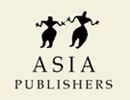 Salwa Bakr, one of Egypt’s most respected novelists and short story writers / Yonhap
Salwa Bakr, one of Egypt’s most respected novelists and short story writers / YonhapArabic modern literature has been rarely introduced into Korean publications due to the lack of common values and its exotic background.
But ``The Golden Chariot,'' which has been recently published in Korean translated directly from Arabic, is drawing attention as it focuses on the Arabic women's lives under a male-dominated society.
Written by Salwa Bakr, one of Egypt's most respected novelists and short story writers, the book uses Arabic literary values weaving tales together into a contemporary ``Arabian Nights.''
Bakr, also known as a feminist, who visited Korea to attend a Korea-Arab literature forum from Nov. 17 to 18, said that she wants to
The Golden Chariot Doesn’t Ascend to Heavens Salwa Bakr; Translated by Kim Neung-woo from Arabic to Korean; Asia: 333 pp., 11,000 won
shed light on the male-dominated social system through literature.
 ``Women's stories in my novel are not only for the Arabic society but also for other societies as almost every civilization has grown based on the male-oriented system in agrarian culture. Particularly, the male-dominated system is prevalent in Asian countries. So I think that can win sympathy from my novel,'' Bakr said.
``Women's stories in my novel are not only for the Arabic society but also for other societies as almost every civilization has grown based on the male-oriented system in agrarian culture. Particularly, the male-dominated system is prevalent in Asian countries. So I think that can win sympathy from my novel,'' Bakr said.The novel revolves around 15 women in a prison in Egypt and the motives behind the crimes.
An Alexandrian woman Aziza is serving a life sentence for the murder of her mother's husband. She killed the man who seduced her, after her mother's death when he took another woman as his new wife despite his promises to Aziza.
In her cell, Aziza imagines a golden chariot to take her to heaven so that her wishes and dreams come true. But she decides to take other fellow prisoners who deserve a free ride to paradise. Aziza, who is described as a woman obsessed with such an illusion, listens to the stories of her fellow prisoners to select them to ride in the chariot.
Her fellow prisoners were imprisoned for various crimes, including murder, theft, and drug-dealing. Um Ragab is behind bars as she resorted to pick pocketing to support her children. Hana killed her husband one night by leaving on the gas after suffering abuse from him for 45 years as a sexual slave and domestic help. Azima, depicted as a tall woman, became a naddaba (professional mourner), then a vocal performer for religious celebrations and finally a popular singer. She killed her abusive lover. Huda is the 16-year-old youngest prisoner; Zaynab Mansur is well educated; while Shafiqa had been a beggar. Um al-Khayr was a peasant likened to a Pharaonic goddess, and Gamalat assaulted her sister's would-be boyfriend. Various characters in the prison who have suffered from harsh reality pushing them to have no choice but to commit a crime are all to get on board Aziza's golden chariot to the heavens.
The novel focuses on how the women came to the prisons and the salvation they need, symbolized by the golden chariot.
But Aziza dies in the last chapter just as she prepares for the chariot's departure. As the novel's title suggests, the chariot does not ascend to the heavens.
It means rather than salvation through a golden chariot to the heavens imagined by Aziza in prison, the author suggests real-life salvation comes from the social and political change begun by the women themselves.
Bakr's is a sarcastic and cynical look at how women of different backgrounds ― some guilty and some innocent ― get together in prison. It is in line with her writing, which mostly depicts life at the grassroots of Egypt's culture, urging women to liberate themselves from poverty and inequality.
Through The Golden Chariot, readers are able to see the injustices of a transitional Arabic society. At the same time, it offers a glimpse of their yearning and longing for a better life. The author also depicts the difficulty that these societies face as honest means rarely solve anything.
Bakr has been concerned about repression in all spheres of Egyptian life and in particular the political sphere. However, she believes that both men and women can be liberated through the contribution of women's writing.
She says that Arabic is a male-dominated language and that ``women should create a language for themselves.''
She does not believe in conflict between men and women, but rather sees both genders as victims of traditional society.
Born in Cairo in 1949, the daughter of a railway worker, Bakr took a degree in business management in 1972 at Ain Shams University and in literary criticism in 1976 before embarking on a career in journalism.
Her short stories began to appear in the press during the 1970s and her work has been met with much critical acclaim.
By Chung Ah-young (chungay@koreatimes.co.kr)
Staff Reporter

 03/25
03/25 

















